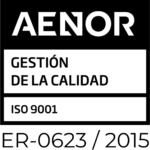The Spanish government has recently approved a Law that introduces important changes in Corporate Law, with particular reference to the shareholders, their rights, to the Board of Directors and Director remuneration.
Indicated below are the main changes:
- Duty of care, loyalty and scope of liability of the Administrative Board.
The Law further specifies the duties of care and loyalty and the procedures which should be followed in case of a conflict of interest.
Similarly Director liability is extended to defacto directors as they are considered to be people who have the functions of an Administrator with a void or expired title, or with another title (e.g. people under whose instructions the directors of the company operate). This may imply that an authorized person or a director, who are not part of the board, should be subject to the same liability.
- New non-delegable powers of the Board of Directors are introduced and, as a result, greater involvement of the directors of the company is expected.
Before the reform, it was possible to delegate to one or several Managing Directors all the faculties of the Board, except for the presentation of the draft budget and the responsibility of social management. With this reform, it requires that certain matters, due to their importance, must necessarily be submitted to approval by the Council as a collective body. These include, for example: the determination of policies and general strategies of the company, the appointment and revocation of managers who depend on the Council or of some of its members, the main conditions of contracts and salaries.
Therefore, the council requires greater commitment in important decision-making concerning the management of the company.
- It is mandatory that the board meets at least four times a year (with a quarterly charter).
The number of mandatory annual sessions of the Council has changed to quarterly compared to the provisions of the previous legislation, which only required one session for the presentation of draft budget.
- The Contract between the company and the CEO or Executive Directors has to be approved by the Board of Directors.
It establishes the obligation to formalize a contract between the company and the managing director or the director with an executive function (even if it is not CEO) to regulate the compensation, including, for example, the indemnity for termination of the employment relationship. This contract must be approved by the Board of Directors with a two-thirds majority, and attached to the minutes of the Council. In addition, that Council Member has to abstain from voting, as well as from attending the session. Similarly, it establishes the inability to determine salaries not specified in the contract.
- Administrative Board compensation.
The reform introduces substantive news regarding Board compensation remuneration – following market practices and offering greater transparency.
In any case, it retains the presumption on the gratuitousness of the directors unless the statute establishes the contrary.
Regarding the procedure for determining the remuneration, aspects to be formalized in the statute are clarified, ruling that the General Assembly will have to approve the maximum amount of the total annual compensation of all directors. The administrators themselves will distribute this maximum amount, according to the functions and responsibilities assigned to each Council Member.
- Responsibilities of the General Assembly and Management intervention.
This circular also highlights the introduction of new jurisdiction in favor of the General Assembly, outlining the acquisition, sale or transfer to another company with “essential goods”. The law considers essential goods, as those goods which exceed 25% of the value of the latest approved balance sheet.
The ability of the General Assembly to intervene has extended beyond limited liability companies to all corporations.
Consequently, the reform implies the need to analyze and possibly modify the company statute as well as how the Board operates under the new law.
The law came into force in December 2014 although the changes to the statute were not implemented until January 1 2015, when the General Assembly opened.
Accordingly, it is appropriate that the company executives and administrators receive assistance to ensure they not only properly manage the company, but also avoid the risks that may arise as a result of the incorrect understanding of company functions and obligations.

















